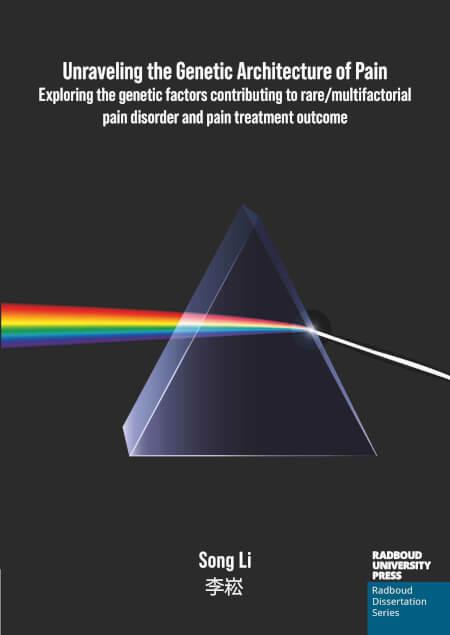Unraveling the Genetic Architecture of Pain: Exploring the genetic factors contributing to rare/multifactorial pain disorder and pain treatment outcome
Keywords:
Genetics, Pain and pain management, Surgery, Genetic EpidemiologySynopsis
Pain, a complex sensory and emotional experience, can result from Mendelian genetic disorders or multifactorial conditions, such as chronic pain. Chronic pain affects around 20% of adults and is a major contributor to global disability. This thesis explores the genetic basis of both Mendelian and multifactorial pain conditions. We investigated erythermalgia (EM), a rare Mendelian pain disorder, using whole-genome sequencing in two families. While no definitive pathogenic variants were found, several candidate genes were identified, emphasizing the need for broader collaboration and refined phenotyping. For multifactorial pain, genome-wide association studies (GWAS) revealed multiple loci linked to chronic postsurgical pain (CPSP), including novel associations with GLRA3 and PDE4D. Further, a protocol for a large-scale prospective study was outlined to predict postoperative pain based on genetic and clinical data. Additionally, we identified a genetic locus associated with treatment response in musculoskeletal pain, with implications for personalized pharmacological strategies. Overall, this work underscores the contribution of genetic factors—particularly neurological and immunological pathways—to pain development and management, offering a foundation for precision medicine approaches in pain care.

Published
Series
Categories
License

This work is licensed under a Creative Commons Attribution-NonCommercial-NoDerivatives 4.0 International License.

